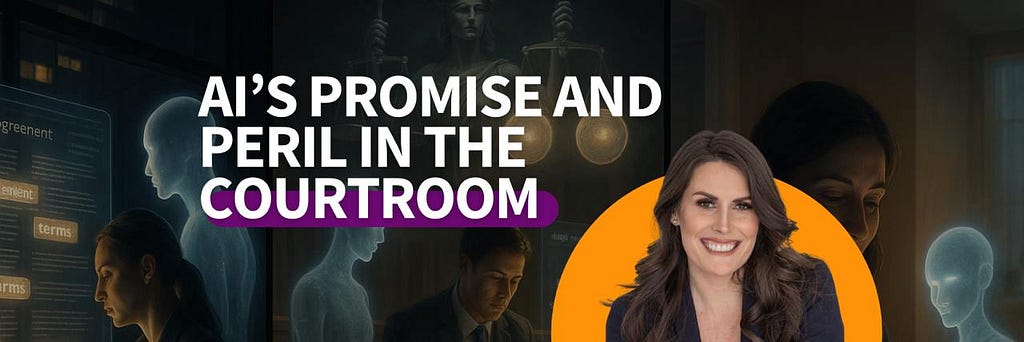
AI’s Promise and Peril in the Courtroom
The legal profession is undergoing a quiet revolution, powered by artificial intelligence. While skeptics highlight AI’s pitfalls, forward-thinking legal professionals recognize its potential to elevate the practice of law in unprecedented ways. In this week’s Straight from Stacey, Twin Protocol CEO Stacey Engle’s AI Twin explores how AI can transform law from a labor-intensive field into one driven by insight, efficiency, and deeper human connection.
Picture a corporate lawyer reviewing a complex merger agreement. Her AI Twin flags critical clauses, suggests proven language, and assesses risks — cutting weeks of work to days. A public defender uses AI to analyze a judge’s rulings, strengthening his client’s case. Meanwhile, a tenant facing eviction gets instant help from a legal chatbot that explains rights and drafts responses.
These examples show AI’s real value: letting lawyers focus on high-value work while improving access to justice. The challenge? Ensuring AI upholds the profession’s integrity while expanding its impact.
💬Let’s discuss! Where should AI never be used in law — no matter how advanced it becomes? The answer could define the future of legal practice.
Here are this week’s top AI headlines shaping the future of technology and its impact on our lives.
This Week’s Top Headlines
- The Double-Edged Sword of AI in Climate Change Solutions
While AI promises to eliminate billions of tons of emissions through smarter energy and transportation systems, its exploding energy demand threatens to cancel out those gains. The race is on to power these climate-saving algorithms with clean energy before their carbon costs outweigh their benefits.
🔗AI Could Be Harnessed to Cut More Emissions Than It Creates - The Limits of Artificial Intimacy in Digital Relationships
Today’s AI companions can simulate affection with alarming precision — remembering preferences, crafting flirty banter, and maintaining consistent engagement. Yet when tested through real relationship dynamics like conflict resolution or vulnerable connection, these chatbots reveal a critical limitation: they excel at performance while lacking the emotional intelligence that defines meaningful human bonds.
🔗Confessions Of A Futurist: I Dated Four AI Boyfriends To Explore The Future Of Dating, Love, And Intimacy - Rethinking Education in the Age of AI Assistance
A recent MIT study revealed that students relying on AI produced weaker essays and faced challenges in independent thinking, pointing to the potential buildup of “cognitive debt.” The findings suggest the core issue lies not in AI itself, but in its current application — much like calculators necessitated a shift in math pedagogy, educators may need to redesign assignments to harness AI as a tool for strengthening, rather than substituting, critical thought.
🔗MIT researchers say using ChatGPT can rot your brain. The truth is a little more complicated
👇 Watch the video here:
https://medium.com/media/e54722a6fda5deeb4c12b8b14033fc8b/href
Let’s navigate this fascinating journey into AI’s potential together. The future starts here.
Set up your own AI Twin today! <twinprotocol.ai/my-twin>
Stay connected:
Telegram: t.me/protocol_twin
X/Twitter: https://x.com/twinprotocolai
Instagram: https://www.instagram.com/twinprotocolai/
YouTube: https://www.youtube.com/@twinprotocolai
LinkedIn: https://www.linkedin.com/company/twin-protocol/
About Twin Protocol
At Twin Protocol, we are committed to pushing the boundaries of technology while keeping the human element front and center. From AI-powered customer service to interactive family legacies, the future is here — and it’s both efficient and deeply personal.